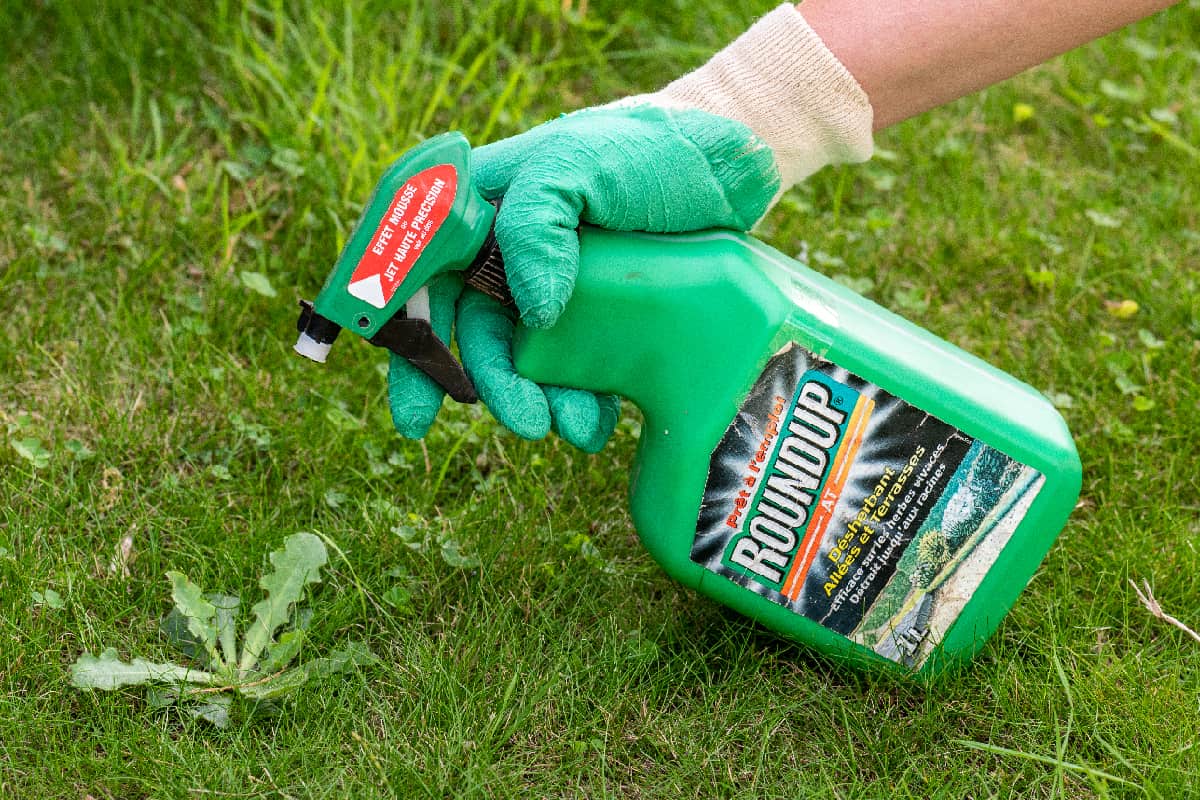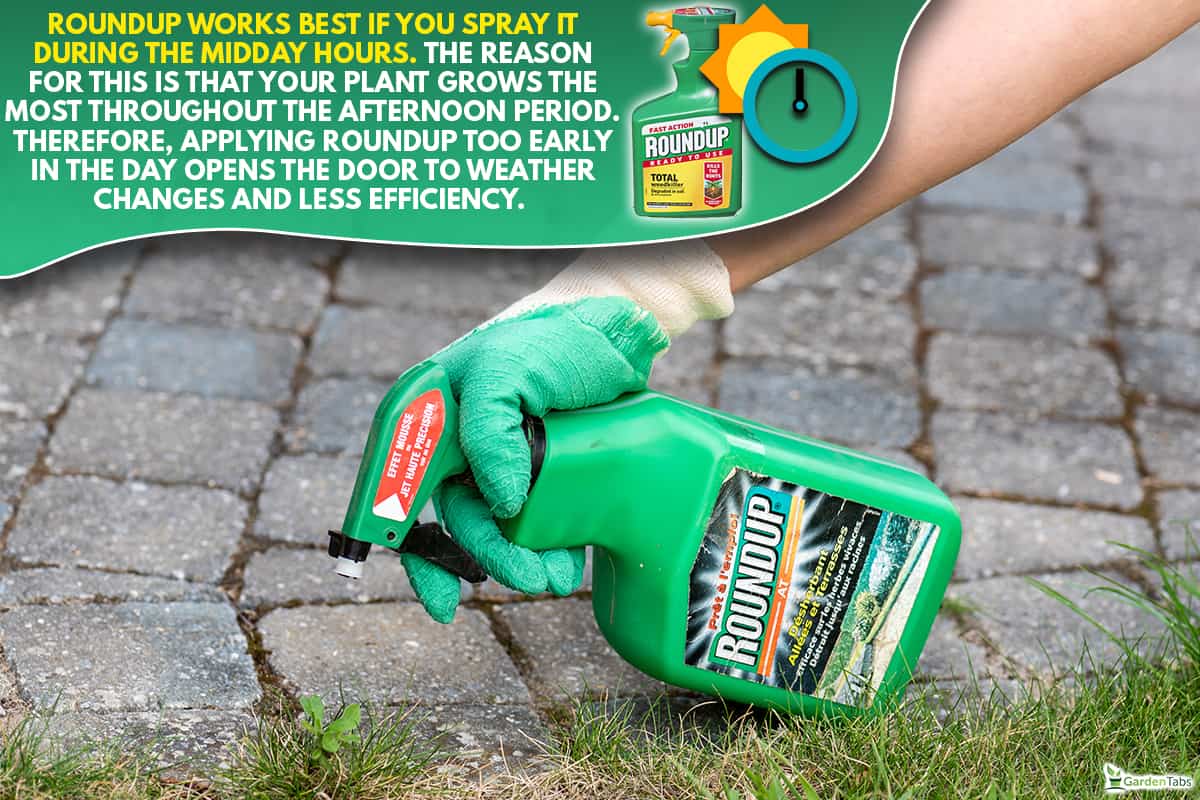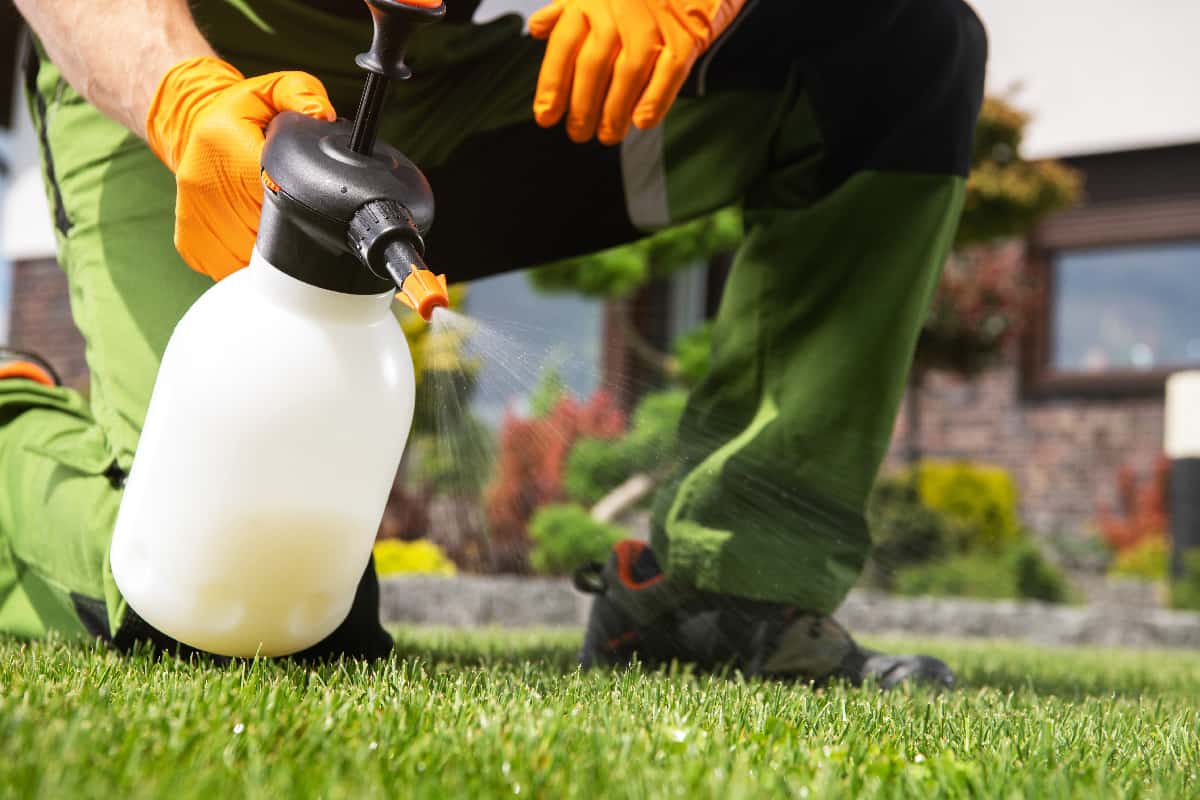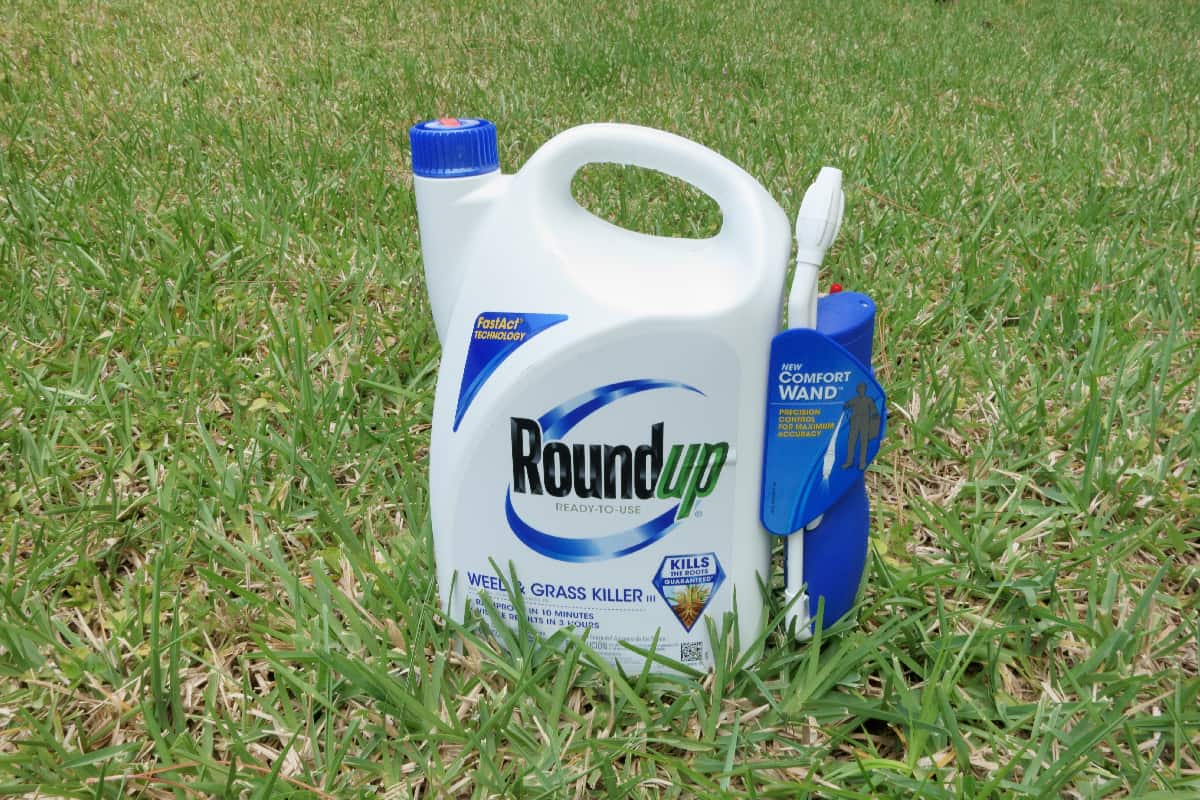Tackling a weed problem in your garden can sometimes feel impossible. Do you want to try using Roundup to clear the ground of weeds but don't know what time of day is best? Can you spray Roundup at night and still get good results? Is it better to do this during the day?
Well, we've done some digging and have the answers to these questions below.
Yes, you can spray Roundup at night and successfully kill weeds. Many experts recommend doing this on an evening with low winds, so your product can seep into the weed you apply it to.
Additionally, Roundup spraying at night can help promote deeper penetration for weeds, which is more effective when photosynthesis begins the following day.
So, although you can spray this herbicide at night, it does need the sun to activate.
As we start this post, we will cover all things using Roundup and discuss when to spray it. Whether you're new to this brand, have a challenging weed problem, or have other related questions, we're here to help. With that said, let's dive right into this topic!
Can I Use Roundup At Night In My Yard?
Yes. You can use Roundup after the sun sets if the wind speeds are low and the weather is clear. Generally, this herbicide will deeply penetrate your weed(s) through the evening hours, activating once the sun rises.

One of the main factors you want to be cautious of with Roundup is the weather. Since this product takes time to kill weeds, you shouldn't spray it in high winds or rain.
If the wind speeds pick up, this can pick up and remove the product from your weeds. The same goes for rainfall or any moisture, as it can lift and wash away the Roundup residue.
With that said, most weather tends to form before the sun sets, allowing you to assess whether it's okay to spray your product or not.
If all else fails, check the radar, and if things get bad, you can always re-spray tomorrow.
Does Roundup Need The Sun To Work?

Yes and no. Roundup does work best with sun exposure, as this is when your weeds will perform photosynthesis. However, that doesn't mean they aren't going to work on a cloudy day too.
According to plant experts, your herbicide should be effective if your weeds aren't dormant. Generally, the sun does help speed up the killing process, hence why we recommend checking the forecast.
On a shadier, windier, or rainy day, your Roundup can become less potent, meaning it will take longer to kill any of the problem plants.
The key here is getting the product to absorb into the leaves of your weed. Once it penetrates the plant, it can start killing it at a deeper, stronger level.
Roundup is also very potent, so the product should work even on a less-than-ideal day.
Does It Matter What Time Of Day You Spray Roundup?

For anyone wanting to have their Roundup be most effective, the time of day you apply it can make a difference. Generally, Roundup works best if you spray it during the midday hours.
Many studies have proven that earlier morning applications of herbicides often prove to be less effective than afternoon-evening sprays.
The reason for this is that your plant grows the most throughout the afternoon period. Therefore, applying Roundup too early in the day opens the door to weather changes and less efficiency.
Another interesting detail to note here is that spraying herbicides like Roundup through later evening hours can also prove effective.
So, just because the sun isn't shining doesn't mean it's time to stop gardening. As we said, the nighttime can be an excellent time for this if the weather is nice.
Remember: wind can change all of this, so check the weather before spraying!
When Should You Not Spray Roundup?
Now that you know the best times to use Roundup, when shouldn't you spray it? As we covered earlier, you don't typically want to use Roundup in inclement weather.
For example, if the weather calls for heavy wind, rain, or snow, you don't want to apply Roundup. That applies to all herbicides, as they will not work as effectively if the conditions are poor.
On top of that, you don't usually need to use herbicides during the winter anyways, as weeds don't respond well to snow and freezing weather.
Again, there could be exceptions, like weeds growing in tropical/moderate regions with minimal winter conditions. You can still apply Roundup if there isn't wind or rain in that situation.
Specifically, if it were to rain or snow within six hours of applying an herbicide, you would need to reapply it once the conditions improve.
How Does Roundup Work?

One of the main ingredients in Roundup is glyphosate. This ingredient essentially works by targeting an enzyme that is essential to plant growth.
So, when you apply Roundup to a pesky weed, you attack it at a molecular level. If you follow the directions on your bottle, this may result in a weed-free yard over the next few weeks.
Since Roundup is one of the more popular weed-killing options, you can usually trust it to handle unwanted plants.
If you want to get extra technical, glyphosate-based herbicides all work on the same biochemical principle: to inhibit a specific enzyme called EPSP synthase.
By targeting this enzyme, your Roundup/herbicide can stop a weed from growing, ultimately causing it to die. At the same time, your product also works to prevent future weeds from forming, so this is great for even the worst weeds.
However, your Roundup is only as good as its application. So, don't expect much to happen if you fail to follow the directions or spray it on a rainy, windy, or snow-filled day.
How Fast Does Roundup Kill Weeds?
Although this can depend on the weed and Roundup product, you should notice your herbicide take effect within a few hours.
According to the brand's website, you can expect their 'Roundup® Max Control 365' line to take closer to 12 hours to start working. In contrast, 'Roundup® Weed & Grass Killer' tends to start killing within a couple of hours, so it's a bit faster.
Again, this isn't the same every time you spray. As we said, the weather might affect your herbicide or the time of day you use it. Plants respond in unique ways to such inhibitors, so some might put up a better fight.
Moreover, Roundup comes with a specific set of instructions you need to follow. If you don't stick to the plan, it might take longer for your weeds to die.
Roundup Ready-To-Use Weed & Grass Killer

This Roundup product targets all types of weeds and grass, includes a 'Pump 'N Go' sprayer, kills down to the root, features a convenient no-mix formula, is rainproof in ten minutes, and comes in a 1.33-gallon container.
Follow this link to view it on Amazon.
Does Roundup Keep Weeds From Coming Back?
Yes! One of the many vital benefits of using Roundup is that it will prevent future weeds from forming. As we said, this product targets specific enzymes in your plant, killing them down to the root.
On the other hand, Roundup can be so strong it prevents future non-weeds from growing. So, if you use it in a specific area of your garden enough times, that could become an issue.
Specifically, you can expect Roundup to keep your garden weed-free for six months post-application. So again, you might not want to get too crazy, as this can affect future landscaping.
That's a great example of how such a strong product can block good plant species from making their way into your property.
Why Isn't Roundup Killing My Weeds?
If you notice your Roundup isn't doing its job, this could be due to a few things. First, storing an herbicide product in freezing or extremely hot conditions can tamper with its active ingredients.
So, if you have your Roundup in the garage, there is less of a chance that it will occur. In contrast, if your product is out in a shed or exposed to the elements, don't expect it to work as well/at all.
According to North Carolina State University, your Roundup/herbicide may also fail to kill weeds if it is overly diluted. Sometimes, defective products can have too much water in them, leading to a less effective outcome on your weeds.
You also need to follow the directions on your Roundup product, so failing to do this could hinder the results. Again, the weather can ruin your plans if a storm comes out of nowhere, so you can't always prevent this.
Regardless, try and plan ahead, store your products in a climate-controlled spot, and follow Roundup's provided instructions to a T.
To Wrap It Up
Whether you have weeds surrounding your garden or want to get ahead of the problem, you've likely considered using Roundup. We found that this popular weed killer can be applied at night, as long as the winds are low and the skies are clear.
In general, you want to try and use herbicides during moderate weather/climates so that they can activate, penetrate, and kill your weeds. Remember, the better the weather, the better your product will work.
Furthermore, Roundup may kill your weeds within a couple of hours or up to 12+. This can vary by product and doesn't always stay the same for every garden or plant.
Made it to the end? Check out these other related garden articles below!
19 Weeds That Look Like Grass [And How To Get Rid Of Them]

